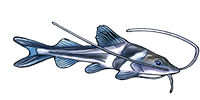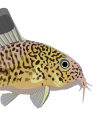I have set up 2 101Lts tanks that I plan to use to breed Corydoras and a few Whiptails (not at the same time). I have successfully spawned C. aeneus, C. paleatus, C. sterbai and raised fry. I have also spawned C. similis and C. julli (C. trilineatus?) but didn't manage to raise any fry. This is the first time I have setup some dedicated tanks to have a proper go at breeding, so I have a few questions:
Are the tanks too big to work with? Most breeders recommend quite small tanks. I was hoping to use these for breeding and fry raising.
Is it best to remove the eggs or the adults after spawning? All my previous success was in community tanks, so the fry had to fend for themselves. I usually managed to raise 5 or so from each spawing in this sort of setup.
Thanks
Shaun
Cory breeding setup.
- apistomaster
- Posts: 4735
- Joined: 10 Jun 2006, 14:26
- I've donated: $90.00!
- My articles: 1
- My cats species list: 12 (i:0, k:0)
- My Wishlist: 1
- Location 1: Clarkston, WA, USA
- Location 2: Clarkston, WA, USA
- Interests: Aquaculture and flyfishing
Hi Shaun,
I have bred a few Corys and like you they include C.aeneus, C.paleatus and C.sterbai. I usually use groups of 6-8 fish with a 2:1 male female ratio. I think a 10US gallons is the smallest size I would use. I use the 20L. I remove the breeders and allow the fry to grow out until they need more room and then I split the juveniles into 2-20L's. This is based on spawns up to 200 fry or so. I tried breeding C.pygmeus but the female went ahead and spawned without the male that I planned to add the next day! For some reason I could never get her to spawn again.
I'm sure you can spawn trios in much smaller tanks but my experience is that the fry are delicate at first so I don't like the idea of moving them.
Larry
I have bred a few Corys and like you they include C.aeneus, C.paleatus and C.sterbai. I usually use groups of 6-8 fish with a 2:1 male female ratio. I think a 10US gallons is the smallest size I would use. I use the 20L. I remove the breeders and allow the fry to grow out until they need more room and then I split the juveniles into 2-20L's. This is based on spawns up to 200 fry or so. I tried breeding C.pygmeus but the female went ahead and spawned without the male that I planned to add the next day! For some reason I could never get her to spawn again.
I'm sure you can spawn trios in much smaller tanks but my experience is that the fry are delicate at first so I don't like the idea of moving them.
Larry
Avid Trout fly fisherman. ·´¯`·...¸><)))º>
- kim m
- Posts: 610
- Joined: 13 Nov 2004, 00:07
- My cats species list: 49 (i:0, k:0)
- Location 1: Denmark
- Interests: Pike and Carpfishing, Aquariums (mainly corys)
Normally I use tanks of 20-30 litres with groups of up to 10 of the smaller/medium sized species (panda, sterbai, undulatus etc.) and I think it's enough if the waterquality is good (I do at least one 50% waterchange each week).
For larger species, such as C-141 (haven't bred them though) I use a 60 litre and for my C. pantanalensis I use a 160 litre...hoping to breed these too.
With some species, like panda, that doesn't lay too many eggs, I hatch the eggs in a netcage in the breeding tank.
With other species, such as sterbai, wich lays many eggs, I remove the parent fish.
For larger species, such as C-141 (haven't bred them though) I use a 60 litre and for my C. pantanalensis I use a 160 litre...hoping to breed these too.
With some species, like panda, that doesn't lay too many eggs, I hatch the eggs in a netcage in the breeding tank.
With other species, such as sterbai, wich lays many eggs, I remove the parent fish.
Best regards,
Kim M
-----------
Catfish Study Group
Guardians of Catfish
Skive Akvarieforening
Kim M
-----------
Catfish Study Group
Guardians of Catfish
Skive Akvarieforening




